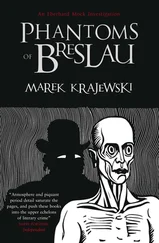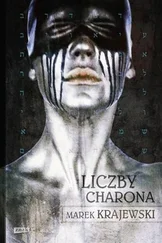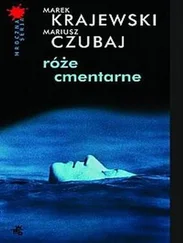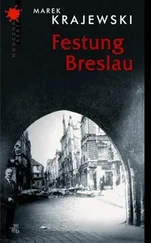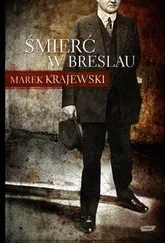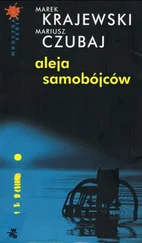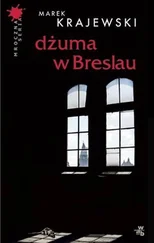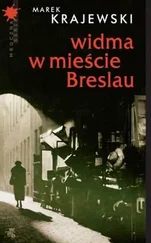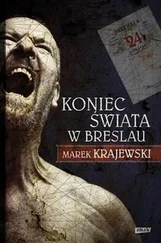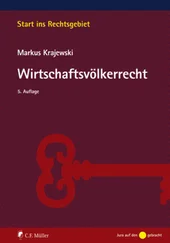Marek Krajewski - Death in Breslau
Здесь есть возможность читать онлайн «Marek Krajewski - Death in Breslau» весь текст электронной книги совершенно бесплатно (целиком полную версию без сокращений). В некоторых случаях можно слушать аудио, скачать через торрент в формате fb2 и присутствует краткое содержание. Жанр: Полицейский детектив, на английском языке. Описание произведения, (предисловие) а так же отзывы посетителей доступны на портале библиотеки ЛибКат.
- Название:Death in Breslau
- Автор:
- Жанр:
- Год:неизвестен
- ISBN:нет данных
- Рейтинг книги:3 / 5. Голосов: 1
-
Избранное:Добавить в избранное
- Отзывы:
-
Ваша оценка:
- 60
- 1
- 2
- 3
- 4
- 5
Death in Breslau: краткое содержание, описание и аннотация
Предлагаем к чтению аннотацию, описание, краткое содержание или предисловие (зависит от того, что написал сам автор книги «Death in Breslau»). Если вы не нашли необходимую информацию о книге — напишите в комментариях, мы постараемся отыскать её.
Death in Breslau — читать онлайн бесплатно полную книгу (весь текст) целиком
Ниже представлен текст книги, разбитый по страницам. Система сохранения места последней прочитанной страницы, позволяет с удобством читать онлайн бесплатно книгу «Death in Breslau», без необходимости каждый раз заново искать на чём Вы остановились. Поставьте закладку, и сможете в любой момент перейти на страницу, на которой закончили чтение.
Интервал:
Закладка:
“Did you go to Rawicz yourself?”
“No, I sent one of my men.”
“And?”
“He found Hanne Schlossarczyk.”
“How did he persuade her to talk? After all, people aren’t usually very willing to admit to such a sin.”
“My man, Schubert, presented himself as a lawyer looking for any heirs to the supposedly deceased Baron. That’s what I thought up.”
“Clever. And what did your man find out?”
“The rich, old lady, on learning of a great inheritance awaiting her, readily admitted to the misdeed of her youth, then started crying so much that Schubert could hardly calm her.”
“So she was sorry for her sin.”
“Not quite. She was furious at herself for not knowing anything about her son, who would have been the Baron’s heir. That’s why she was crying.”
“So she had qualms of conscience?”
“So it would appear.”
“And so the Baron has an illegitimate son by her. That’s a fact. What is his name, how old is he and where does he live?”
“Schlossarczyk worked for the Baron from 1901–1902. That’s presumably when she got pregnant. Thereafter, Baron Ruppert von der Malten, Olivier’s father, never again employed a woman, not even as cook. So her son must be thirty-one or thirty-two. His name? We don’t know. Certainly not the same as the Baron. His mother got a handsome sum to keep quiet, enough for her to live comfortably to this day. Where does the bastard live now? That we don’t know either. And what do we know? That until he became of age, he lived in an orphanage in Berlin, where he landed up as a baby from his loving mother’s arms.”
“What orphanage?”
“She doesn’t know herself. Some merchant took him there. An acquaintance of hers.”
“The merchant’s name?”
“She didn’t want to give it to us. She said he had nothing to do with it.”
“And your man believed that?”
“Why should she lie? I told you she cried because she didn’t know her son’s name. If she did, she’d have been pleased. She’d got an inheritance, after all.”
Anwaldt automatically asked another question:
“Why did she hand him over to an orphanage? She could have lived comfortably with her son on the money the Baron gave her.”
“That my man didn’t ask.”
The detective put his pistol in his pocket. He could barely breathe through his parched throat. His gum was aching and swelling. The hornet stings, too, were playing up again. He opened his mouth and did not recognize his own voice:
“Was Maass happy with you?”
“Yes and no. Because, after all, we only partially carried out his instructions. My man established that Hanne Schlossarczyk had a child by the Baron. But he did not establish either his name or his whereabouts. So we only got a half from Maass.”
“How much?”
“A hundred.”
Anwaldt lit a Turkish cigar which he had bought in the covered market by Gartenstrasse. The pungent smoke took his breath away for a moment. He mastered the spasm in his lungs and exhaled a huge ball of smoke towards the ceiling. He unbuttoned his shirt collar and loosened his tie. He felt embarrassed: a moment ago he had held the man in his sights and now he was smoking in his company as with an old friend. (I got carried away needlessly and terrorized this man. My gun opened nothing but his lips. That’s all it did. It didn’t guarantee the truth. Huber could have simply made it all up.) He glanced up at the certificates and photographs hanging on the wall. On one of them, Franz Huber was shaking hands with a high-ranking officer in a spiked helmet. Under the newspaper photograph the legend read: “The policeman, Franz Huber, who saved the child, receives the congratulations of General Freiherr von Campenhausen. Beuthen 1913.” Anwaldt smiled in conciliation. He was resigned.
“Herr Huber, I apologize for pulling out that pop gun. You used to be a policeman (how do you people in Breslau call it? Schkulle ?), and I treated you like the suspect’s associate. It is no surprise that you were suspicious of me, especially as I do not have my identification with me. All it resulted in was my leaving now without knowing whether you lied to me or not. In spite of that uncertainty, I’ll ask you one more question. Without the gun. If you answer, it might just be the truth. May I speak?”
“Go ahead.”
“Doesn’t it seem strange to you that Maass dispensed with your services so easily? It’s obvious, after all, that he’s looking for the Baron’s illegitimate son. Why did he stop halfway, pay half your fee and not try to look for him any more with the help of your agency?”
Huber took off his jacket and poured himself some soda water. He remained silent for a moment and gazed at the framed photographs and certificates.
“Maass laughed at me and my methods. He thought I had bungled it, that I could have put pressure on the old woman. He decided to find it all out for himself. I knew he liked to brag, so I asked him how he was going to find the man he was looking for. He said that he would restore the old bag’s memory with his friend’s help and that she would tell him where her little son was.” Huber opened his mouth and sighed loudly. “Listen to me, son. Your pop gun didn’t frighten me. I’ve got that old Jew Maass and you up my arse,” he panted angrily. “I didn’t lie to you because I didn’t want to. And do you know why? Ask Mock. I’ll have a word with him about you. And you’d better get yourself out of here if it turns out he doesn’t know you.”
XIII
BRESLAU, THAT SAME JULY 16TH, 1934
EIGHT O’CLOCK IN THE EVENING
Anwaldt was, indeed, leaving Breslau, but not because of Huber’s threats. He sat in a first-class carriage, smoking cigarette after cigarette and watching with indifference the monotonous, Lower Silesian landscape in the orange light of sunset. (I’ve got to find that descendant of von der Malten’s. If some curse really is hanging over the Baron’s descendants, then they’re in mortal danger from Erkin. But why am I really looking for him? After all, Mock and I have found the murderer. No, no we haven’t, we’ve only identified him. Erkin works through Maass; he’s watchful, knows we’re looking for him. There’s no doubt that Erkin is the “friend” who’s going to squeeze the information out of Schlossarczyk. So, looking for Schlossarczyk’s son, I’m looking for Erkin. Dammit, he might be in Rawicz already. I wonder what orphanage the boy was at in Berlin. Maybe I knew him?) Lost in thought, he burnt his fingers on his cigarette. He swore — not only in his thoughts — and swept his eyes over the compartment. All the travellers on the night train had heard his crude expletive. A boy of around eight, podgy, very Nordic and dressed in a navy-blue suit was standing in front of him and holding a book in his hand. He said something in Polish and put the book on Anwaldt’s lap. Suddenly, he turned round, ran to his mother — a young, stout woman — and sat on her knees. Anwaldt glanced at the title of the book and saw that it was a school edition of Oedipus the King by Sophocles. It was not the little boy’s book; some secondary school pupil going on holiday must have left it in the compartment. The boy and the mother watched him expectantly. Anwaldt gesticulated that it was not his book. He asked his fellow passengers about it. Apart from the lady with the child, there were a student and a young man with pronounced Semitic features. Nobody owned up to the book and the student, seeing the Greek text, reacted with a “God forbid”. Anwaldt smiled and thanked the boy by tipping his hat to him. He opened the book at random and caught sight of the familiar Greek letters which he had once so loved. He was curious whether, after so many years, he would be able to understand anything. He read under his breath and translated verse 685: “There was the voice of dark suspicions which gnaw at the heart”. (I still remember Greek well; I did not know two words; it’s a good thing there’s a little dictionary at the back of the book.) He turned over a few pages and read verse 1068 — Jocasta’s lines. He did not have the least problem with the translation. “Unfortunate one, may you not know who you are.” The aphoristic character of these sentences reminded him of a certain game he used to play with Erna: Biblical fortune-telling, so called. They would open the Bible at random and point to the first verse that came to hand. The sentence thus found was to constitute a prophecy. Laughing quietly, he closed Sophocles then opened him again. The game was interrupted by the Polish guard asking for his passport. He examined Anwaldt’s documents, touched the peak of his cap with his finger and left the compartment. The policeman returned to his divination, but he could not concentrate on the translation because of the fixed and stubborn gaze of the boy who had presented him with Oedipus the King . The lad was sitting and staring at him without blinking. The train moved off. The boy continued staring. Anwaldt lowered his eyes to the book then glared at the boy. It did not help. He wanted to attract the mother’s attention, but she was fast asleep, so he went out into the corridor and opened the window. Pulling out the cardboard box of cigarettes, he touched — with relief — the new police identification card which he had picked up from the Police Praesidium Personnel Department after leaving Huber’s office. (If a little brat can manage to make me so anxious, there is something wrong with my nerves.) One inhalation and nearly a quarter of the cigarette was burned down. The train drew into a station. A large sign announced RAWICZ.
Читать дальшеИнтервал:
Закладка:
Похожие книги на «Death in Breslau»
Представляем Вашему вниманию похожие книги на «Death in Breslau» списком для выбора. Мы отобрали схожую по названию и смыслу литературу в надежде предоставить читателям больше вариантов отыскать новые, интересные, ещё непрочитанные произведения.
Обсуждение, отзывы о книге «Death in Breslau» и просто собственные мнения читателей. Оставьте ваши комментарии, напишите, что Вы думаете о произведении, его смысле или главных героях. Укажите что конкретно понравилось, а что нет, и почему Вы так считаете.

